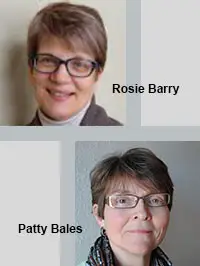
For the past five years, organizational development consultants in the Office of Human Resources at the University of MN have used emotional intelligence as a key component in their leadership development cohort programs. During this time several hundred people have taken the original EQ-I and the revised version.
During this session we will cover two models, one for the development of strong EQ-i2.0 debrief Coaches and the other for the assessment process used in these programs. We will also look at key learnings as they apply to faculty, both those focused on research and those focused on teaching, as well as staff in an academic institution.
Rosie Barry has 25 years of experience as an internal and external organizational development practitioner, working both in private industry and public enterprises. In her current position, she is the assistant director of Organizational Effectiveness in the Office of Human Resources at the University of Minnesota and leads a group of consultants. Change management, team dynamics, and strategic planning are some of the activities that she has helped groups to master. Her current area of interest is neuroscience and its application to change management.
Rosie holds master’s degrees in Human Resources/Industrial Relations from the University of Minnesota and Counseling Psychology from the University of St. Thomas.
Patty Bales has more than 25 years of experience in corporate and higher education environments, working in employee and leadership development, organizational development, and change management. Her current role in the Organizational Effectiveness group focuses on career and leader development using multiple assessments like the EQ-i.
Patty holds a master’s degree in Human Resource Development from the University of St. Thomas, and certifications/qualifications that enable her to use several assessments for the purpose of adult development.
Copyright © 2025 Crescendo Inc. All Rights Reserved.
Website Design & Maintenance, Byers Media